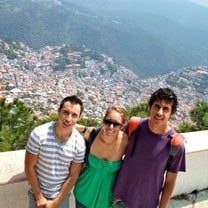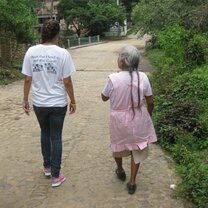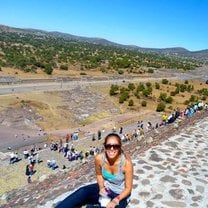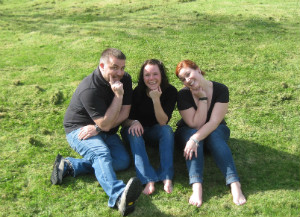
How and when did you begin working for HECUA?
Nigel: I began teaching at Ulster University (HECUA’s partner in Northern Ireland) at the start of 2007. Explaining how I came to work with HECUA is tricky because I have not developed, and successfully implemented, a master plan for my working life!
I know that my experiences of working in education, training and peace building caused me to be excited at the possibility of facilitating the deep learning experience that is the HECUA Northern Ireland Program (why I applied for the job), but it is easier for me to say why I am still directing the HECUA Northern Ireland program after 8 years – our students still challenge me to think critically (and to care more deeply) about the place I call home.
Why do you think HECUA’s model of internships + classroom time is so effective?
Nigel: The focus of HECUA’s Northern Ireland Program is how a society can transition from violent conflict to sustainable peace. This is a big challenge perhaps especially when you consider how much hurt is experienced through violence. In attempting to ‘study’ and understand the work of building peace our students are invited to ‘practice’ peace building.
Through internships (and many other components of the program) students experience what it means to ‘be’ peace builders. Through our process of facilitating reflective engagement with these practical experiences our students put all sorts of things to the test: ideas, theories and, ultimately, themselves.
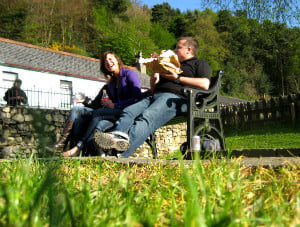
Why is this model so effective – through these experiences our students are in a position to take much more confidence in what they know and what they consider important.
Describe a time when you felt especially proud to be part of the HECUA teaching staff.
Nigel: 9 May 2014. I helped organize an event to celebrate 12 years of successful partnership between HECUA and Ulster University and to acknowledge the transition of the program from the university’s UNESCO Centre to its current home with the university’s International Conflict Research Institute.
In the midst of a busy HECUA program students volunteered to share some reflections on their semester with the invited audience of senior academics, political representatives and community activists (no pressure!). The students ‘stole the show’ with thoughtful and inspirational contributions including a song written and performed by a number of students!
While this was a specific event, the pride and humility caused by ‘my’ students, and the impact they make, is a regular occurrence!
Do you have a hidden skill or talent? What is it?
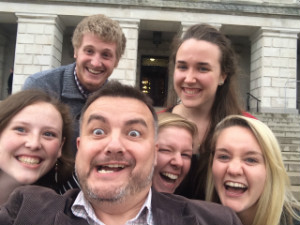
Nigel: To my astonishment people appear to be quite impressed when they learn that I played an accordion when I was young. I take more pride in my abilities with a jigsaw (the power tool!) and I reckon it sounds better too.
Who is your favorite author?
Nigel: Franz Kafka – helps me when dealing (struggling) with bureaucracy.





